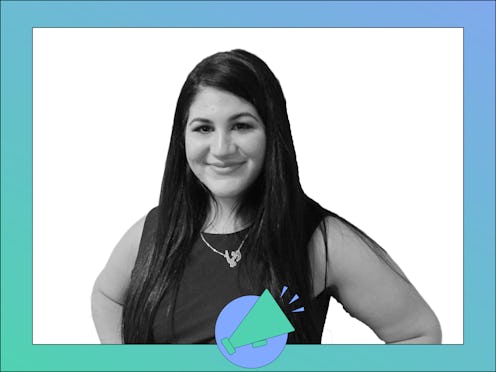News
Donya Nasser On Being Muslim And Feminist

Growing up in America with an Iranian mother who, after an arranged marriage, came to this country with no agency to pursue an education, I realized how difficult it can be to navigate gender along the lines of culture. It was hard for my mom to attain any kind of economic empowerment at first; a simple act of opening a bank account wasn't something she could afford, not because of economics, but because of her gender. I watched my mom challenge stigmas in our community by getting a divorce and raising her kids on her own, and I recognized the importance of maintaining your true identity. This is why I identify as both a feminist and a Muslim woman, an intersection many people have had difficulty understanding. But identifying this way has helped me advocate for things greater than myself for the next generation: gender equality, reproductive rights, women's empowerment and civic engagement among the youth.
As an ardent supporter of reproductive rights, I served as the youngest member on the Planned Parenthood board. I love what I do, but it's been challenging. I've worked hard to be outspoken on the issues that I'm passionate about and that's come with some backlash. I get hate mail all the time for being closely affiliated to Planned Parenthood, but I just put my blinders on, look ahead and do the work.
Both labels of identity — Muslim and feminist — get twisted to fit damaging political agendas very often. I was afraid that I would get pushback for not wearing a hijab, as though that didn't make me Muslim enough. That was my fear because there are ideas about what makes a Muslim woman, but I've had a lot of support and that's been motivating.
My motivation also stems from having a personal connection to the work I do. When I was in 11th grade, I had the highest grade in my AP Language class. My mom later told me that my teacher used to go to my mom every month to get a pedicure, as my mom was working as a nail technician at the time. I think it's funny how that worked: my mom is cleaning this lady's feet and I'm the top student in her class. The dichotomy, my mom tells me, always strikes her as both embarrassing and empowering. But for me, it was only empowering to see how embedded my identity is to my work.
I've even faced discrimination within feminist organizations. A former executive director of an organization I worked with started sending me harassing emails about how Islam and feminism were mutually exclusive when she found out I identified as a Muslim woman. I spoke up, but stepped down from my position; it clearly wasn't a supportive environment. But it made me realize that even within this feminist organization, there are women who believe that other women should not be feminists neither should they be involved in the movement simply because of their religion.
If this is happening in a feminist organization, then this is certainly happening in society at large. Going into politics as a woman with Middle Eastern ethnicity isn't a popular choice. It's only by challenging the misconceptions that there can be any positive change in policy, which is why I never shy away from saying I'm both a Muslim and a feminist.
Though the work has been challenging at times, and it has been difficult for some to allow me to be both feminist and Muslim, I've continued in my fight to help the next generation of women. Last year, I served as the U.S. Youth Observer to the United Nations, making me the first Iranian American person to do so. Generally, the role was two-fold: you're representing American youth at the UN and you are bringing the work of the UN to the American youth. But the highlight of the entire experience was being able to represent the U.S. on an international scale and challenge the stereotype that people have of Muslims. Many were surprised that a 23-year-old Muslim Iranian American woman was representing American youth at the UN.
I've consistently engaged in and sought out experiences that allow me to be an active participant in national and global discussions on race, gender and policy. I majored in political science and gender studies in college and I'm currently a fellow at the Department of Health and Human Services where I focus on women and minorities. I feel like we don't have enough political voices in these spaces. You don't often hear about someone with my cultural background fighting for reproductive rights and it's because there is still a stigma around it, but I'm working to change that.
As told to Krutika Pathi by Donya Nasser
Images: Caroline Wurtzel/Bustle (4)